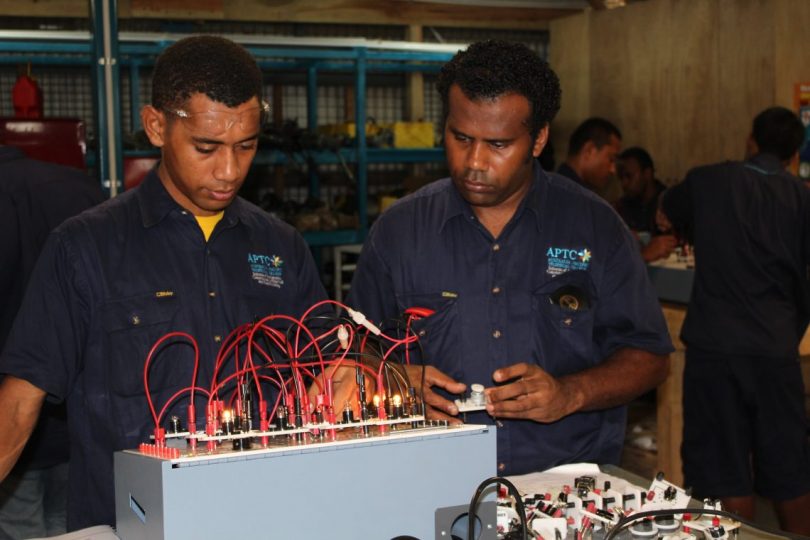Register here to receive a link to the Zoom webinar.
The Australia Pacific Training Coalition (APTC) is a major Australian government foreign aid initiative that commenced in 2008, that has spent over $350 million, and that has turned out over 15,000 graduates with Australian qualifications. Analysis of graduate tracer surveys in our recent Devpolicy Discussion Paper shows that employment outcomes for APTC graduates looking for a job (job-seekers) have worsened markedly over the last decade. Graduates from each of the seven Pacific countries for whom there is sufficient data show worsening outcomes over time. Employment outcomes have worsened in part because APTC has changed the composition of courses it offers towards qualifications with weaker employer demand, but mainly because of the falling demand for the trades and hospitality qualifications it has offered since inception. There are worse employment outcomes for female APTC job-seekers. Our analysis suggests that concerns about brain drain are overblown. We suggest the APTC adopt a greater focus on promoting international migration opportunities to improve employment outcomes for their graduates, a more demand-led approach to student admission and course selection, and a review of the quality of graduates.
We also, in a related new Policy Brief propose one solution to the above problem, namely, helping APTC graduates to migrate to Australia under existing temporary skilled visas.
Speakers:
Dr Richard Curtain is a Research Fellow specialising in Pacific labour mobility. As a public policy consultant, he has worked on labour mobility on assignments related to the APTC, and in Fiji, Papua New Guinea, Samoa, Solomon Islands, Timor-Leste and Tonga. He is the co-author with colleagues at Devpolicy of a paper for the World Bank on Pacific Labour Mobility and organised a workshop at Devpolicy on this topic in June 2016. His PhD is from ANU on internal migration and urban unemployment in Papua New Guinea.
Professor Stephen Howes is Director of the Development Policy Centre. He has a PhD in economics from the London School of Economics. He served in various positions for a decade at the World Bank before becoming AusAID’s first Chief Economist in 2005. He is now Professor of Economics at the Crawford School of Public Policy, ANU.
This webinar is free and open to the public. It will be recorded, and the recording will be made available after the event through the Development Policy Centre website.


Leave a Comment